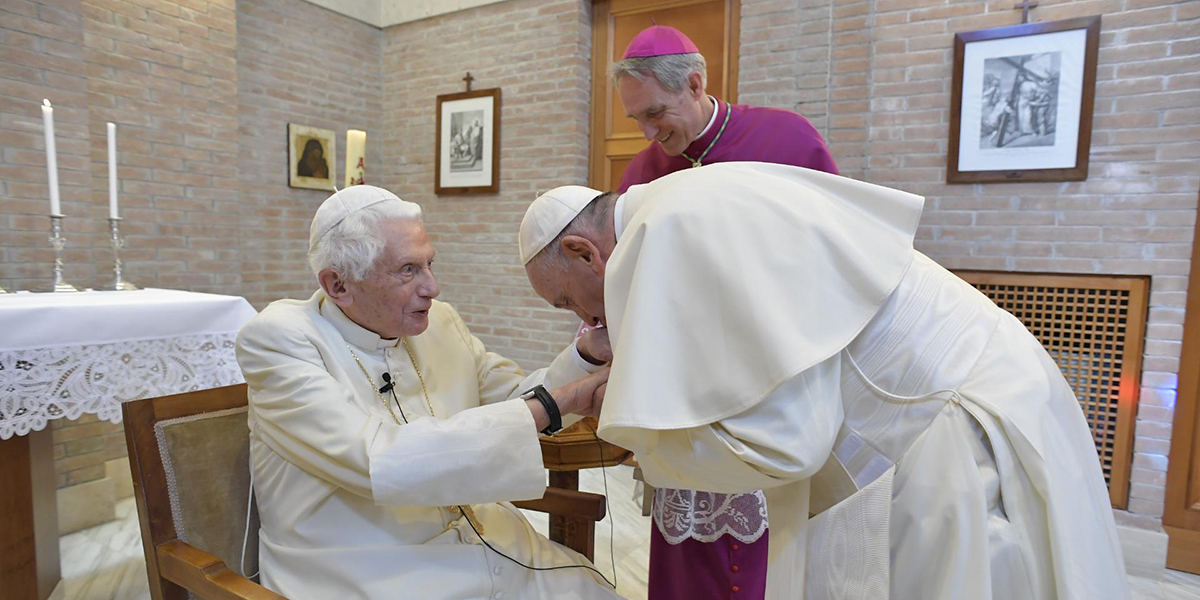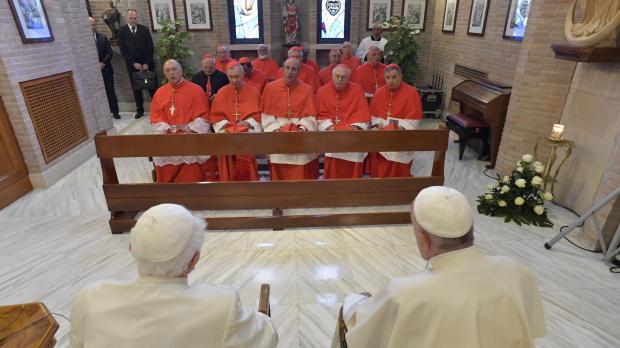Pope Francis has brought 14 more men into the College of Cardinals, continuing with his practice of making the college reflect the “peripheries” of the Church. The group includes prelates from Madagascar, Japan, and Pakistan — and, notably, the “papal almoner,” Polish Archbishop Konrad Krajewski.
This last selection will be, the pope says, the beginning of a new precedent.
In an interview with Reuters last week, he said:
It think there are two long arms of the pope – that of being custodian of the faith, and there the work is done by the Congregation for the Doctrine of the Faith, and the prefect has to be a cardinal. And the other long arm of the pope is the almoner, and there must be a cardinal there. These are the two long arms of the pope – faith and charity.
Taking a look at the stories of these pastors, we see men who have taken up the plight of the poor, of Christian minorities, and of the mission to bring the Church to the margins.
Here are a few biographical details about the 14 new “red hats.”
And here are six highlights from the pope’s homily at the consistory:
- “They were on the road, going up to Jerusalem, and Jesus was walking ahead of them” (Mk 10:32). The beginning of this typical passage in Mark always helps us realize how the Lord cares for his people with a pedagogy all his own. Journeying to Jerusalem, Jesus is careful to walk ahead of his disciples.
- Jesus teaches us that conversion, change of heart and Church reform is and ever shall be in a missionary key, which demands an end to looking out for and protecting our own interests, in order to look out for and protect those of the Father.
- Conversion from our sins and from selfishness will never be an end in itself, but is always a means of growing in fidelity and willingness to embrace the mission.
- When we forget the mission, when we lose sight of the real faces of our brothers and sisters, our life gets locked up in the pursuit of our own interests and securities.
- In our journey towards Jerusalem, the Lord walks ahead of us, to keep reminding us that the only credible form of authority is born of sitting at the feet of others in order to serve Christ. It is the authority that comes from never forgetting that Jesus, before bowing his head on the cross, did not hesitate to bow down and wash the feet of the disciples. This is the highest honour that we can receive, the greatest promotion that can be awarded us: to serve Christ in God’s faithful people. In those who are hungry, neglected, imprisoned, sick, suffering, addicted to drugs, cast aside. In real people, each with his or her own life story and experiences, hopes and disappointments, hurts and wounds.
- I would like now to share with you a part of the spiritual testament of Saint John XXIII. Progressing in his own journey, he could say:
“Born poor, but of humble and respectable folk, I am particularly happy to die poor, having distributed, in accordance with the various needs and circumstances of my simple and modest life in the service of the poor and of Holy Church which has nurtured me, whatever came into my hands – and it was very little – during the years of my priesthood and episcopate. Appearances of wealth have frequently disguised thorns of frustrating poverty, which prevented me from giving to others as generously as I would have wished. I thank God for this grace of poverty to which I vowed fidelity in my youth; poverty of spirit, as a priest of the Sacred Heart, and material poverty, which has strengthened me in my resolve never to ask for anything – money, positions or favours – never, either for myself, or for my relations and friends” (29 June 1954).


